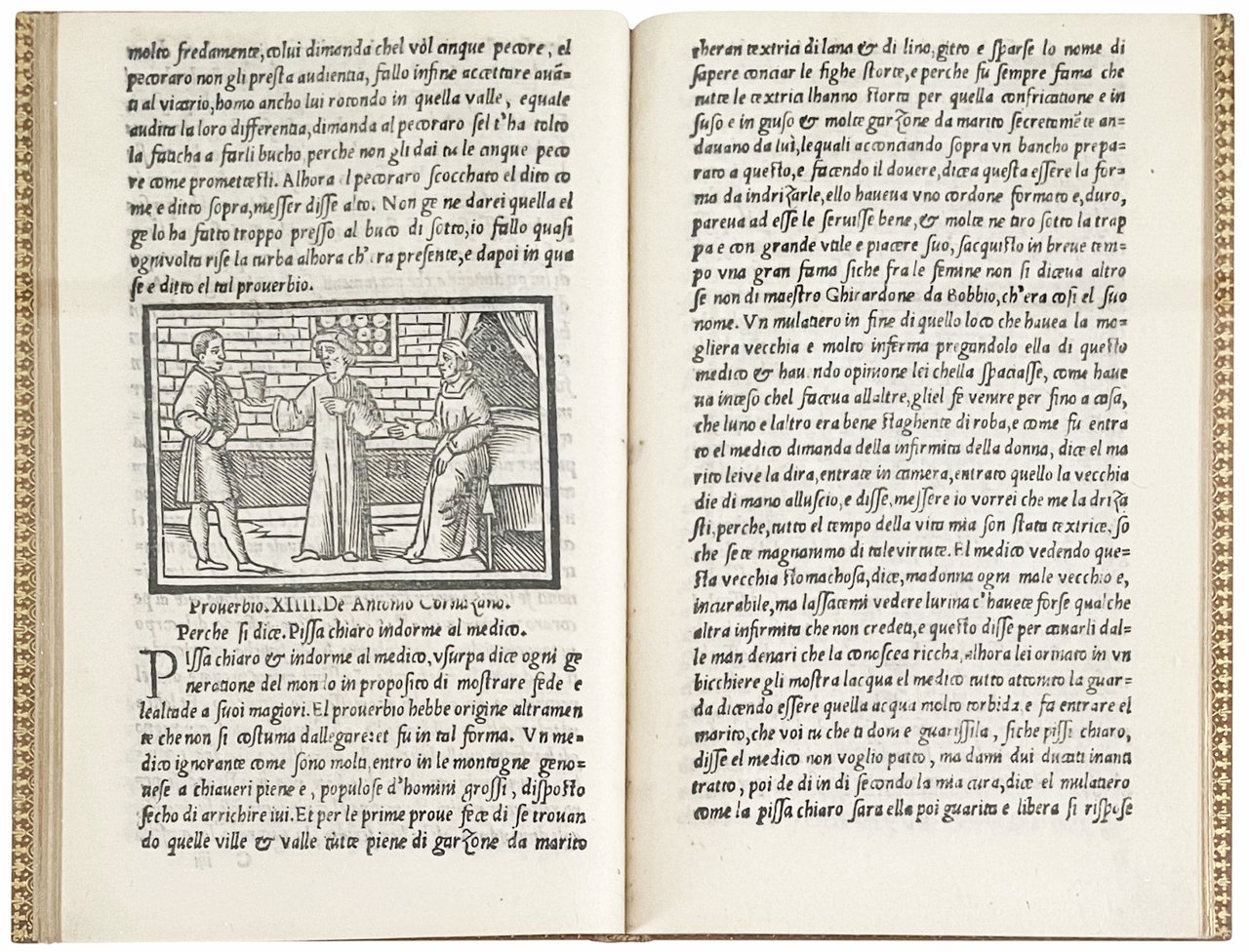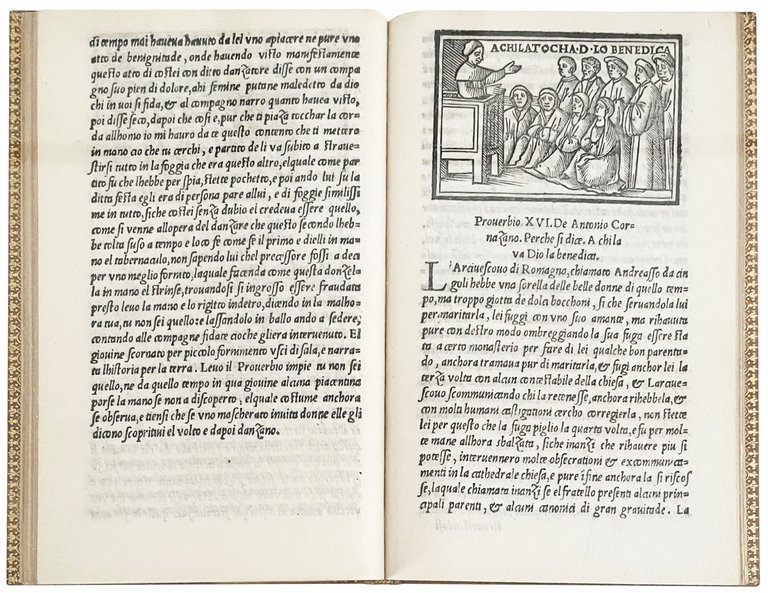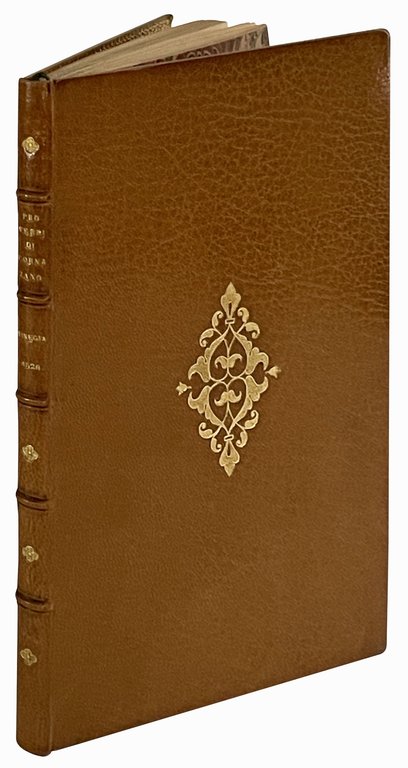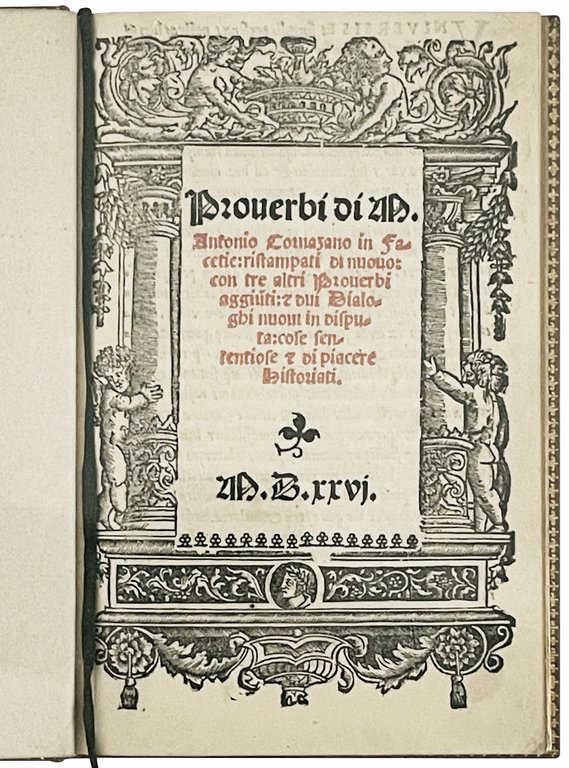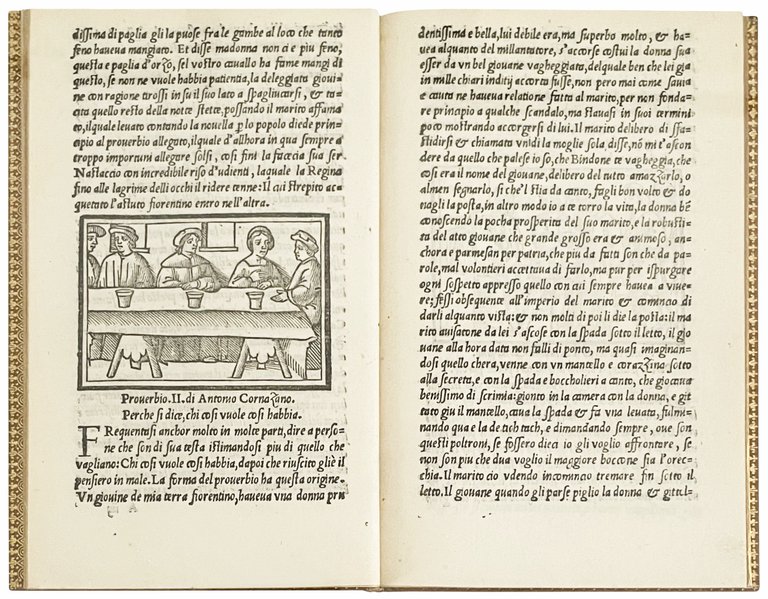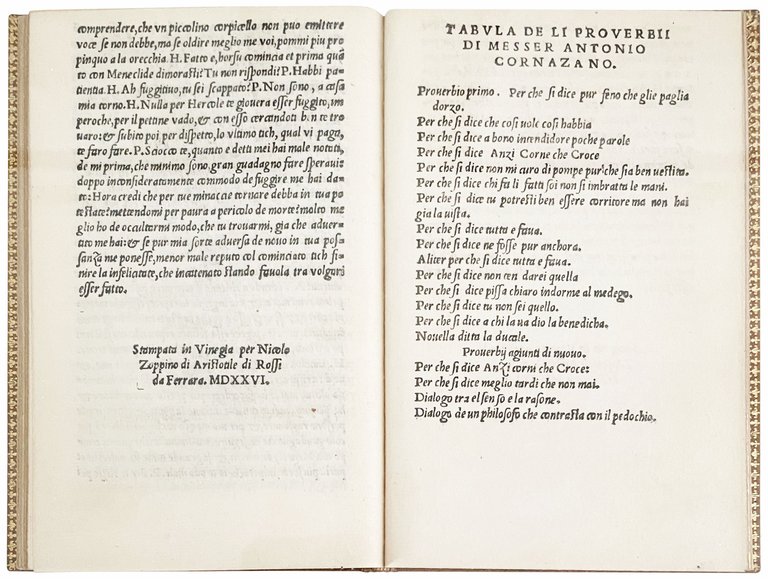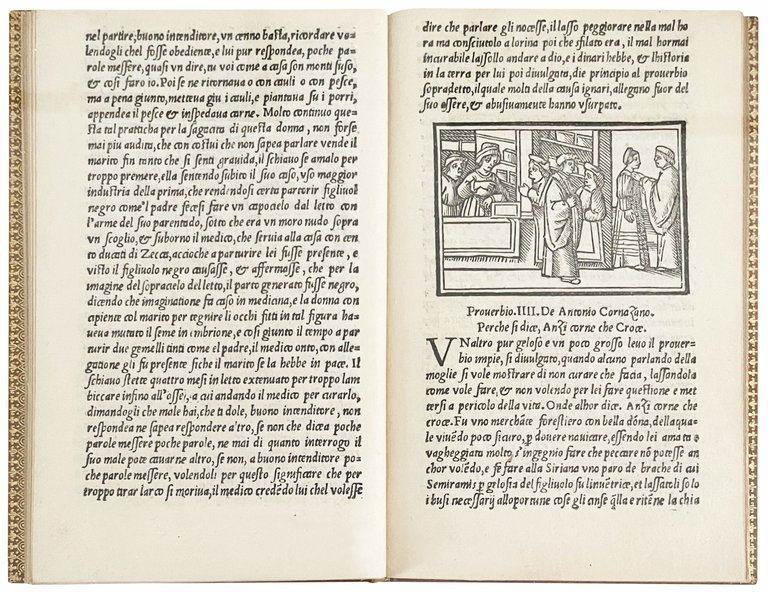Proverbi di M. Antonio Cornazano in Facetie: ristampati di nuovo: con tre altri Proverbi aggiunti: & dui Dialoghi nuovi in disputa: cose sententiose & di piacere historiati. M.D.XXVI
Proverbi di M. Antonio Cornazano in Facetie: ristampati di nuovo: con tre altri Proverbi aggiunti: & dui Dialoghi nuovi in disputa: cose sententiose & di piacere historiati. M.D.XXVI
Mode de Paiement
- PayPal
- Carte bancaire
- Virement bancaire
- Pubblica amministrazione
- Carta del Docente
Détails
- Année
- 1526
- Lieu d'édition
- Venezia
- Auteur
- CORNAZZANO, Antonio (c. 1430-1483/4)
- Éditeurs
- Nicolò Zoppino
- Thème
- Quattro-Cinquecento
- Etat de conservation
- En bonne condition
- Langues
- Italien
- Reliure
- Couverture rigide
- Condition
- Ancien
Description
PROVERBS OF THE ITALIAN RENAISSANCE
8vo (mm 147x95), [40] leaves. Collation: A-E8. Title printed in red and black within a woodcut architectural border. Colophon on l. E7v. With 17 woodcut vignettes in text illustrating the proverbs (some repeated). Nicely bound in hazelnut morocco by Trautz-Bauzonnet, gilt fleuron at the center of the panels, gilt spine in compartments, marbled edges, inside gilt dentelles, gilt edges, green silk bookmark. Bookplate Horace de Landau on the front pastedown. A very good copy.
Early illustrated edition (it could be the fourth, fifth or sixth depending on the order of the three different edition appeared in 1526), a reprint of Zoppino 1525 edition, which was the first to contain the Dialogo tra el senso e la rasone taken from Seneca and the Dialogo de un philosopho che contrasta con il pedochio. Although reprinted about fifteen times between 1518 (when it was first printed in Venice by Francesco Bindoni and Maffeo Pasini) and 1558, all editions were already extremely rare in 1812, when Renouard decided to republish the work in Paris, using the text of the 1525 Zoppino edition.
The three additional proverbs announced in the title (which become two in the final index) are not actually included in the edition, which contains the previously printed 16 proverbs and the so-called Novella ducale, with the only addition being the two dialogues cited above. The spurious character of these additional texts, which were subject to various interpolations, is also attested by the earlier 1523 Zoppino edition, which in addition to the proverbs presents a vernacularization of Apuleio's ‘Golden Ass'.
Cornazzano composed a work called De proverbiorum origine around 1454 with a dedication to Cicco Simonetta. In it, he made a rather original attempt to rewrite the typical topics of the vernacular tradition in the form of Latin erotic poetry. De proverbiorum origine, which gathers ten novels in elegiac verses, each of them illustrating an Italian proverb, had an initial manuscript circulation and in 1503 was printed in Milan by Pietro Martire Mantegazza.
The fortune of Cornazzano's work on proverbs is however linked to an Italian prose reworking first printed in 1518 with the title Proverbi in facetie. The first edition contains sixteen proverbs followed by the so-called Novella ducale, which narrates an episode of punished infidelity involving Francesco and Bianca Maria Sforza. Of the ten novels of De proverbiorum origine, only five found their way into the vernacular version and the Italian version is not always entirely faithful. For this and other reasons, scholars agree on the fact that the vernacularization was not the work of Cornazzano and his original Latin text was interpolated at different stages.
Antonio Cornazzano was born around 1429 in Piacenza. He served the Sforza, Colleoni and Este families, at whose court he died around 1484. A court and improviser poet, he was one of the most prolific poets of his time: to glorify Francesco Sforza, he wrote the poem the Sforzeide, and put into verse several treatises, including a life of the Virgin (Vita di Nostra Donna, Venice 1471), other lives of illustrious men, and a treatise on military art (Opera bellissima de l'arte militar, Venice 1493) (cf. P. Farenga, Cornazzano, Antonio, in: “Dizionario biografico degli Italiani”, vol. 29, Rome, 1983, s.v.).
Edit 16, CNCE15278; Sander, 2183; Essling, 2021; Passano, I, 230; Catalogue Landau, II, 294; Baldacchini, 193.
